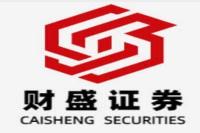Hong Kong Stock Market Shows Resilience Amidst Global Uncertainty: A Detailed Analysis of the Recent Dip
Meta Description: The Hong Kong stock market experienced a dip, with the Hang Seng Index dropping nearly 1% and the Hang Seng Tech Index falling by 2.2%. This article analyzes the reasons behind the decline, explores the current market sentiment, and provides insights into potential future trends.
Dive into the world of Hong Kong's dynamic stock market, where every fluctuation tells a story. Today, the Hang Seng Index (HSI) and the Hang Seng Tech Index (HSTI) have taken a dip, sending ripples through the financial landscape. But is this just a temporary blip, or a sign of deeper market anxieties? Let's delve into the details to unravel the mysteries behind this recent dip and explore the implications for investors.
This article aims to provide a comprehensive analysis of the recent dip in the Hong Kong stock market, focusing on the key factors driving the decline, the overall market sentiment, and potential future projections. We'll also explore the impact of global economic uncertainties and the performance of specific sectors within the indices, offering valuable insights for investors navigating this dynamic market.
Understanding the Recent Dip: A Look at the Key Drivers
The recent dip in the Hong Kong stock market can be attributed to a confluence of factors, both domestic and international. Let's break down these drivers:
1. Global Economic Uncertainty:
The global economy is facing headwinds from various sources, including persistent inflation, rising interest rates, and ongoing geopolitical tensions. These factors create a sense of uncertainty among investors, leading to a cautious approach and a potential pullback in risky assets, including stocks.
2. US Federal Reserve's Monetary Policy:
The US Federal Reserve's aggressive interest rate hikes have impacted global financial markets. Higher interest rates make borrowing more expensive, potentially slowing economic growth. This has led to a flight to safety, with investors seeking refuge in less risky assets, further contributing to the dip in the Hong Kong stock market.
3. China's Economic Slowdown:
China's economy is facing challenges, mainly due to the ongoing pandemic, real estate sector woes, and weak consumer spending. This slowdown has implications for Hong Kong's economy, as it relies heavily on trade with mainland China. The sluggish Chinese economy has dampened investor sentiment.
4. Tech Sector Headwinds:
The tech sector, a significant contributor to the Hang Seng Tech Index, has been facing headwinds due to regulatory scrutiny, concerns about growth prospects, and valuation adjustments. These factors have contributed to the decline in the HSTI.
5. Geopolitical Tensions:
Ongoing geopolitical tensions, particularly the war in Ukraine and the heightened rivalry between the US and China, create a volatile environment for global markets. These tensions have added to investor anxieties and contributed to the overall market volatility.
Market Sentiment and Future Projections: Navigating the Uncertainty
The recent dip has undoubtedly created a sense of uncertainty in the market. However, understanding the prevailing sentiment and future projections is crucial for investors seeking to navigate this dynamic landscape.
1. Short-term Volatility:
In the short term, the market is likely to remain volatile, with investors closely monitoring global economic developments, interest rate decisions, and geopolitical events. The constant flow of news and data can create rapid shifts in sentiment, leading to fluctuations in stock prices.
2. Long-term Growth Potential:
Despite the recent dip, the long-term growth potential of the Hong Kong stock market remains intact. The city's status as a global financial hub, its robust economy, and its close ties to China's growth story continue to attract investors.
3. Sectoral Diversification:
Investors are advised to diversify their portfolios across different sectors, including those less affected by global economic headwinds and geopolitical tensions. Sectors like healthcare, consumer staples, and utilities tend to be relatively resilient in challenging economic environments.
Key Sectors to Watch: Unpacking the Performance of Specific Industries
While the overall market has been affected by the recent dip, different sectors have experienced varying degrees of impact. Here's a closer look at some key sectors:
1. Technology:
The tech sector, heavily represented in the Hang Seng Tech Index, has been particularly vulnerable to the recent downturn. Concerns about growth prospects, regulatory scrutiny, and valuation adjustments have led to significant declines in tech stocks.
2. Real Estate:
The real estate sector, a significant component of the Hang Seng Index, has been affected by China's slowdown and concerns about the property market. However, the sector is also expected to benefit from government policies aimed at stabilizing the market.
3. Financials:
The financials sector has generally held up better than other sectors, as banks and financial institutions are expected to benefit from higher interest rates. However, rising interest rates can also increase borrowing costs for individuals and businesses, potentially impacting economic growth.
4. Healthcare:
The healthcare sector is often seen as a defensive sector, meaning it tends to be less vulnerable to economic downturns. The sector is expected to benefit from growing demand for healthcare services and pharmaceuticals.
5. Consumer Staples:
Consumer staples, such as food and beverage companies, generally perform well during economic downturns as they provide essential goods and services. These companies are expected to benefit from rising inflation and strong consumer demand.
Hong Kong Stock Market: Opportunities and Challenges
The recent dip in the Hong Kong stock market presents both opportunities and challenges for investors.
Opportunities:
- Attractive Valuations: The decline in stock prices has created attractive valuations for investors seeking to buy into quality companies at discounted prices.
- Long-term Growth Potential: The long-term growth potential of the Hong Kong stock market remains intact, driven by China's economic growth and the city's status as a global financial hub.
- Sectoral Opportunities: The varying performance of different sectors offers opportunities for investors to identify and capitalize on sector-specific growth stories.
Challenges:
- Volatility: The market is likely to remain volatile in the short term, presenting challenges for investors seeking to time their investments.
- Global Economic Uncertainty: The global economic outlook remains uncertain, posing a risk to the Hong Kong stock market.
- Geopolitical Tensions: Ongoing geopolitical tensions can create volatility and uncertainty, further challenging investors.
Navigating the Market: Tips for Investors
Here are some key tips for investors navigating the Hong Kong stock market:
- Diversify: Diversify your portfolio across different sectors, asset classes, and geographic regions to reduce risk.
- Long-term Perspective: Adopt a long-term perspective and avoid short-term trading decisions based on market fluctuations.
- Research: Conduct thorough research on companies before investing, focusing on their fundamentals, growth prospects, and management quality.
- Consult Professionals: Seek advice from financial professionals who can provide personalized guidance and help you develop a well-informed investment strategy.
Frequently Asked Questions (FAQs)
1. What is the outlook for the Hong Kong stock market in the short term?
The outlook for the Hong Kong stock market in the short term is uncertain, with volatility likely to persist. Investors should closely monitor global economic developments, interest rate decisions, and geopolitical events.
2. Is this the right time to invest in the Hong Kong stock market?
Whether now is the right time to invest depends on your individual circumstances and investment goals. If you have a long-term perspective and are willing to ride out short-term volatility, the recent dip could present attractive buying opportunities. However, if you are risk-averse or have a short-term investment horizon, you may want to wait for more clarity.
3. Which sectors are expected to perform well in the Hong Kong stock market?
Sectors like healthcare, consumer staples, and utilities are often seen as defensive sectors and are expected to perform relatively well during economic downturns. The technology sector, however, faces headwinds and may continue to be volatile.
4. What are the key risks to consider when investing in the Hong Kong stock market?
Key risks include global economic uncertainty, rising interest rates, geopolitical tensions, and regulatory changes. Investors should carefully assess these risks before making any investment decisions.
5. How can I mitigate the risks associated with investing in the Hong Kong stock market?
Diversifying your portfolio across different sectors, asset classes, and geographic regions can help mitigate risk. You can also seek advice from financial professionals to develop a well-informed investment strategy.
6. What are the key factors to consider when selecting Hong Kong stocks?
Key factors include the company's fundamentals, growth prospects, management quality, and competitive landscape. It is also important to consider the company's exposure to global economic risks and geopolitical tensions.
Conclusion: A Dynamic Market with Opportunities and Challenges
The Hong Kong stock market, like any other financial market, is subject to fluctuations and uncertainties. However, it remains a dynamic and attractive investment destination, offering opportunities for investors who can navigate the challenges and capitalize on the growth potential.
By understanding the key drivers of the recent dip, monitoring market sentiment, and adopting a long-term perspective, investors can position themselves to benefit from the opportunities that this dynamic market presents.



